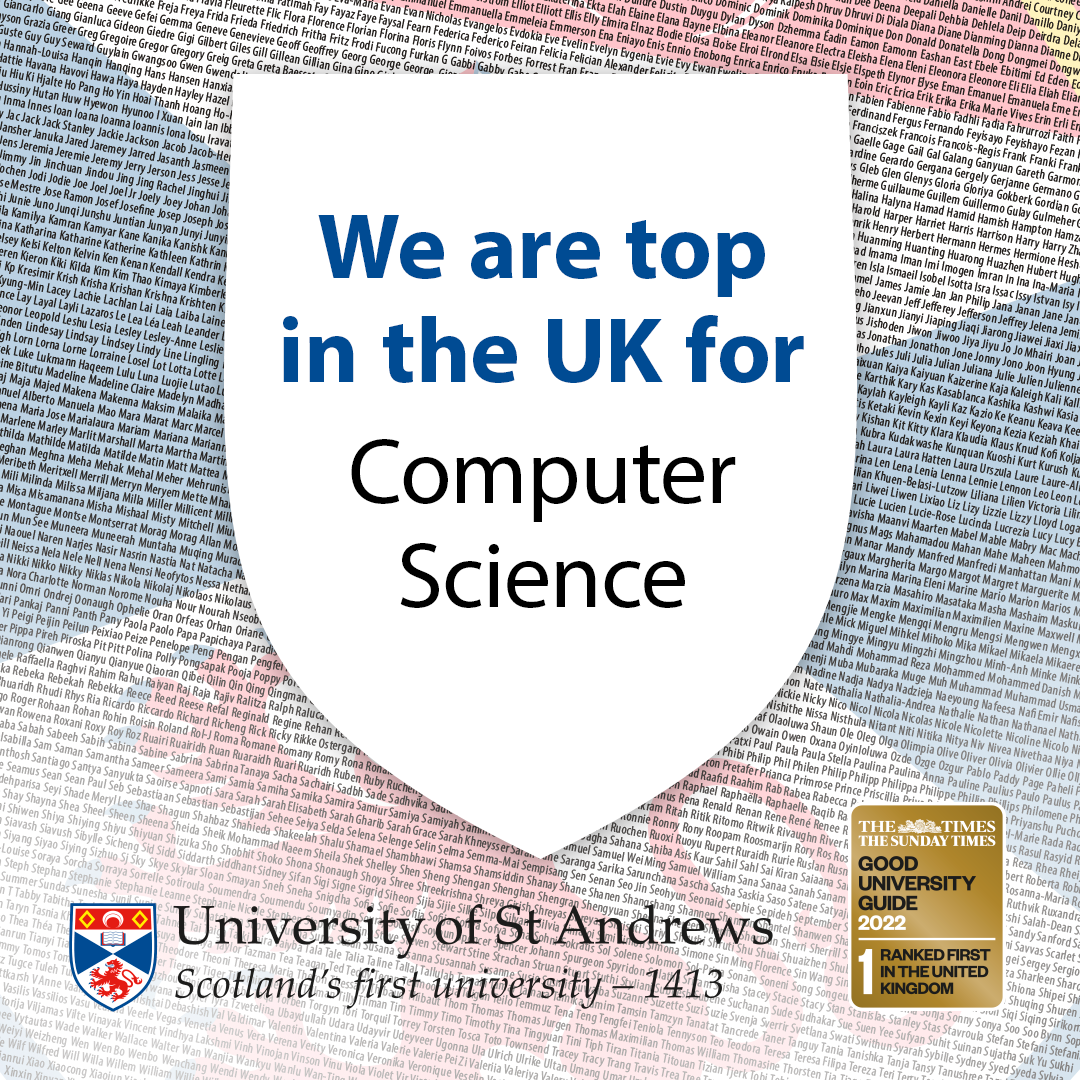We are top in the UK for Computer Science

The University of St Andrews makes history by ranking top in the United Kingdom in the @thetimes. The University tops seven of the subject league tables: Business Management, Computer Science, English, Middle Eastern and African Studies, Philosophy, Physics and Astronomy, and International Relations. #GoodUniGuide http://ow.ly/GUyi50GbB08 #evertoexcel
